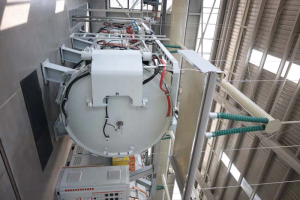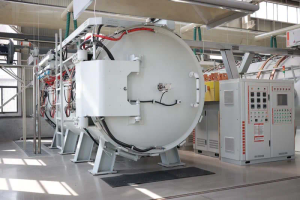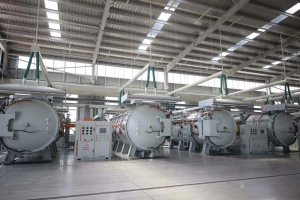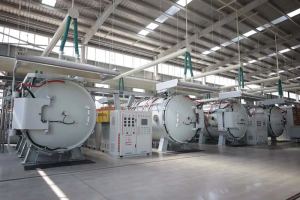Choosing the Right Silicon Carbide Refractory for Your Application
Choosing the Right Silicon Carbide Refractory for Your Application
Silicon carbide (SiC) refractories have gained prominence in various industries due to their exceptional thermal stability, corrosion resistance, and mechanical strength. Selecting the appropriate silicon carbide refractory for specific applications is crucial for optimizing performance and longevity. This article delves into the essential factors to consider when choosing silicon carbide refractories, covering their properties, types, applications, and selection criteria.
Understanding Silicon Carbide Refractories
Silicon carbide is a compound of silicon and carbon, known for its hardness and high thermal conductivity. These materials are often used in environments that require resistance to extreme temperatures, chemical attack, and mechanical wear. SiC refractories are available in various forms, including bricks, castables, and tiles, each tailored for specific applications.
Properties of Silicon Carbide Refractories
1. High Temperature Resistance
One of the primary advantages of silicon carbide refractories is their ability to withstand high silicon carbide crucible for sale temperatures. They can maintain structural integrity at temperatures exceeding 1600°C (2912°F). This property makes them ideal for use in kilns, furnaces, and other high-temperature processes.
2. Exceptional Thermal Conductivity
Silicon carbide refractories exhibit excellent thermal conductivity, which is essential for applications requiring efficient heat transfer. This characteristic helps in reducing energy consumption and improving process efficiency.
3. Corrosion and Oxidation Resistance
Silicon carbide is inherently resistant to many corrosive materials, including molten metals and slag. This resistance extends the lifespan of the refractory materials, reducing maintenance costs and downtime.
4. Mechanical Strength
SiC refractories possess high mechanical strength, allowing them to withstand heavy loads and resist abrasion. This property is particularly beneficial in applications involving continuous wear and tear.
Types of Silicon Carbide Refractories
1. Silicon Carbide Bricks
Silicon carbide bricks are commonly used in high-temperature applications such as electric arc furnaces and kilns. They are available in various shapes and sizes, offering flexibility in design and installation.
2. Silicon Carbide Castables
Silicon carbide castables are mixtures of SiC particles and binders that can be molded into different shapes. They are ideal for complex geometries and offer the advantage of easy application in repair work.
3. Silicon Carbide Tiles
Tiles made from silicon carbide are used in various applications, including furnace linings and industrial equipment. Their flat surface allows for easy installation and effective heat distribution.
Applications of Silicon Carbide Refractories
1. Steel and Iron Industry
In the steel and iron industry, silicon carbide refractories are used in ladles, blast furnaces, and sintering plants. Their resistance to thermal shock and chemical corrosion makes them suitable for these challenging environments.
2. Cement Industry
Silicon carbide refractories are employed in cement kilns, where they withstand high temperatures and aggressive atmospheres. Their durability helps maintain operational efficiency and product quality.
3. Glass Manufacturing
The glass industry utilizes silicon carbide refractories in melting furnaces. The material’s thermal stability and resistance to glass corrosion ensure optimal performance during production.
4. Petrochemical Industry
In petrochemical applications, silicon carbide refractories are used in reactors and reformers. The materials’ ability to resist high temperatures and corrosive chemicals is critical for maintaining safety and efficiency.
Factors to Consider When Choosing Silicon Carbide Refractories
1. Operating Temperature
The first step in selecting silicon carbide refractories is determining the maximum operating temperature of the application. Different grades of SiC refractories can withstand varying temperatures, so it is essential to choose a material that meets or exceeds these requirements.
2. Chemical Environment
Understanding the chemical composition of the materials that the refractories will come into contact with is crucial. This includes evaluating the presence of slag, molten metal, gases, and other aggressive substances. The right SiC refractory should have adequate resistance to these chemicals.
![]()
3. Mechanical Load
Assessing the mechanical load that the refractory will bear is vital. High-strength silicon carbide refractories are recommended for applications subject to significant wear and tear, ensuring durability and longevity.
4. Thermal Shock Resistance
Applications that involve rapid temperature fluctuations require refractories with good thermal shock resistance. Evaluating the specific thermal cycling conditions can help determine the best SiC refractory material.
5. Installation Method
The installation method can also influence the choice of silicon carbide refractories. For instance, if a quick installation is necessary, castables may be preferable, whereas bricks may be more suitable for long-term, stable installations.
6. Cost Efficiency
While silicon carbide refractories tend to have a higher upfront cost compared to traditional refractory materials, their longer lifespan and reduced maintenance needs can lead to lower overall costs. Evaluating the total cost of ownership is essential for making an informed decision.
7. Availability and Supplier Reliability
Choosing a reputable supplier who can provide high-quality silicon carbide refractories is crucial. Ensuring that the materials are readily available and that the supplier offers reliable support can significantly impact project success.
Conclusion
Choosing the right silicon carbide refractory for your application requires careful consideration of multiple factors, including operating conditions, chemical exposure, and mechanical demands. By understanding the unique properties and types of SiC refractories, industries can make informed decisions that enhance productivity and reduce costs. As technology advances, the development of even more specialized silicon carbide refractories will continue to expand their applications across various sectors, ensuring their place as a vital component in high-performance environments.
In summary, silicon carbide refractories stand out for their remarkable properties, making them indispensable in many industrial applications. By thoroughly evaluating the specific needs of each application, industries can harness the full potential of silicon carbide refractories, resulting in improved efficiency, reduced downtime, and enhanced operational safety.
https://oaicon.com/



